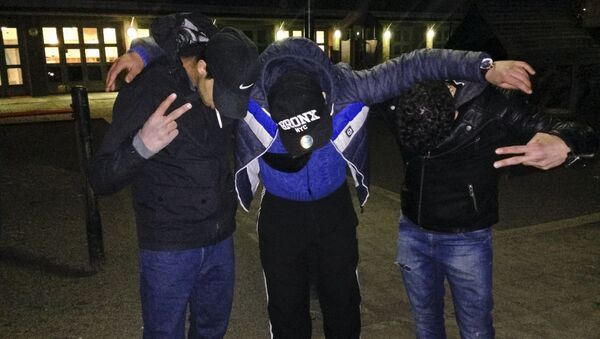In Sweden, the Migration Board is collaborating with the Security Service (SÄPO) to detect security risks among asylum seekers before problems arise. So far this year, the Migration Board has referred 671 suspicious cases to SÄPO, a record compared with 461 in 2015 and 109 in 2014. The majority of cases involve asylum seekers, whereas others include people seeking a residence permit in Sweden.
One of the reasons for the increase is the exceptional number of asylum seekers in 2015, when Sweden took in a record 163,000 migrants.
"I do not think we will return to levels of around a hundred notifications a year, despite the declining number of asylum applications," Oskar Ekblad of the Swedish Migration Board told Swedish national broadcaster SVT, referencing the fact that asylum-related migration to Sweden has decreased by 80 percent compared with last year.
While the Migration Board has invested progressively more time and effort in assessing potential security threats, Ekblad admitted that there is no guaranteeing that all security risks are covered, since the authorities work with the information submitted by asylum seekers themselves, which involves identification documents, itineraries, contacts with various groups, political activity, military training and combat experience.
"Our system alone is not enough to ward off the threat, but we can contribute to the overall capability," Ekblad told SVT.
Cases that alert the Migration Board are referred to SÄPO for review. When an asylum seeker is considered a security threat, SÄPO opposes granting him or her a residence permit. So far this year, SÄPO has opposed taking in 46 asylum seekers, which is a significant rise compared with 2015. According to Ekblad, this figure is bound to increase further next year, as SÄPO's investigations tend to drag on.
Despite the weight SÄPO carries, people identified as security risks will not necessarily leave the country immediately. In reality, deportation decisions depend on the situation in people's respective home countries, together with whether or not it's decided that the person in question runs the risk of execution or torture.
Last week, Sweden's newly-appointed national coordinator against violent extremism, Anna Carlstedt, controversially suggested that the threat of Islamist terrorism in Europe was linked to the rise of right-wing extremism, which allegedly made society more polarized.
Carlstedt's comment surprised many people. "So it is the white power movement that spurs jihadists to travel to Syria? Crikey!" Ivar Arpi, leading columnist at Swedish newspaper Svenska Dagbladet, tweeted sarcastically.
Nya samordnaren mot våldsbejakande extremism antydde nyss i Studio Ett att vit makt-rörelsen gör att jihadister reser till Syrien. Jösses.
— Ivar Arpi (@Ivarpi) 20 декабря 2016 г.
Never miss a story again — sign up to our Telegram channel and we'll keep you up to speed!





